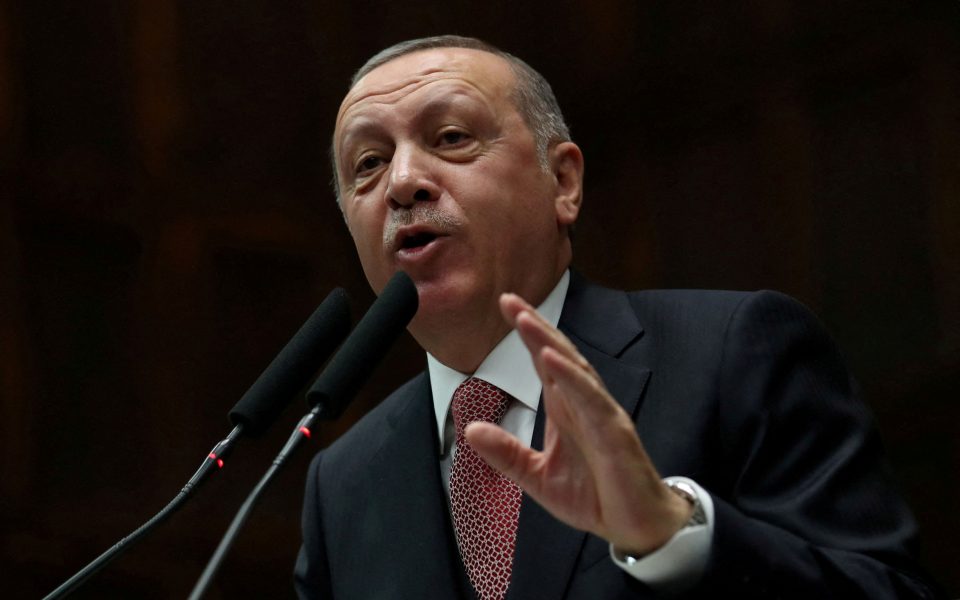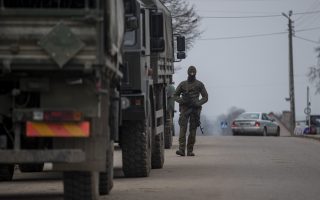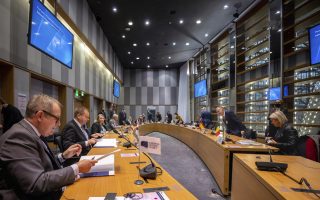5+1 reasons why 2022 will be a tense year for Greek-Turkish relations

The last few days herald a difficult year for Greek-Turkish relations. This assessment is supported by:
1. The internal situation in Turkey.
As the Turkish economy is in turmoil with no visible way out, President Recep Tayyip Erdogan will be hard-pressed to restore his severely tarnished image by engaging in political maneuvering in Turkey. Spurred by his nationalist ally, Devlet Bahceli, he will seek to boost Turkish pride. The Kurdish issue, the Cyprus issue and relations with Greece, emotionally charged as they are, have always lent themselves to political ends and electioneering purposes in Turkey.
2. The hardening of Turkish positions toward Greece and Cyprus.
Last July, Turkish diplomacy proceeded to expand its “negotiating curriculum” with Greece. In letters from the permanent representative of Turkey to the United Nations, Feridun Sinirlioglu, it added that the demilitarization of Greek islands as a precondition for the recognition of Greek sovereignty over them is completely unsustainable from a legal standpoint and a politically unacceptable position. Thus, the Turkish request for demilitarization was linked to the questioning of the sovereignty of Greek islands, such as Lesvos, Samos, Chios, Limnos and Samothraki. This is an unprecedented distortion of the provisions of the Treaty of Lausanne.
This tactic of shifting to extreme positions, which consciously undermines the prospects for a meaningful dialogue, has been adopted by Ankara in the Cyprus issue as well, with the promotion of the “two-state solution.”
3. The election timing in Greece, Cyprus and Turkey.
2023 is an election year in all three countries. This situation will render difficult, over the course of 2022, which is a pre-election year, the possibility of moderate movements on the political-diplomatic chessboard. The responsibility lies with the Turkish side. This is confirmed by the hardening of positions, with aircraft and drones conducting overflights above Greek islands and with fierce rhetoric directed even against Prime Minister Kyriakos Mitsotakis, Minister of Foreign Affairs Nikos Dendias and, recently, President of the Hellenic Republic Katerina Sakellaropoulou. The personalization of political differences and the “demonization” of the opponent further worsen the already difficult climate.
4. The tension in public rhetoric and diplomacy.
The already strident public rhetoric in Greek-Turkish relations is expected to intensify on the occasion of the 100th anniversary of the destruction of Smyrna and the violent expulsion of the Greeks of Asia Minor, which the other side perceives as a victory over “cruel invaders.” It should also be borne in mind that 2023 will be a double centenary, on the one hand, since the founding of the Turkish Republic following the dissolution of the Ottoman Empire in World War I, and, on the other, since the signing of the Treaty of Lausanne, which constitutes the institutional foundation of the status quo in the Aegean in the Eastern Mediterranean challenged by Turkey. Semantics is a significant component of foreign policy; even more so in this part of the world and for leaders with the characteristics of President Erdogan, who persistently claims a higher position than Kemal Ataturk in the annals of Turkish history.
5. The Turkish view on the defense shielding of Greece.
Following the dangerous migration crisis caused by Turkey in March 2020 on the border at Evros and the prolonged tension in the summer of the same year in the Aegean and the Eastern Mediterranean, Greece proceeded, as it should have, with an evolving vigorous program to strengthen its defense. No one knows how some hotheads in Ankara could assess this.
Then, there is the migration issue. Recently, in addition to the repeated Turkish slanders against Greece regarding push-backs, there has been a resumption of illegal migration flows that may increase, especially if there is a recession in the pandemic.
The combination of all this obliges Greece to be constantly calm and vigilant. Against a political conception that has at its core the “casus belli,” the active diplomatic and operational containment policy systematically implemented by the government becomes the only option. Only in this way can substantive conditions for a strictly demarcated dialogue with Turkey be created.
Until then, we need to remain calm and determined.
George Koumoutsakos is a member of the Hellenic Parliament for the Athens B1 Constituency (North) with the New Democracy party. He is also a member of the Parliamentary Committee on Defense and Foreign Affairs.





